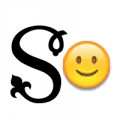Which extended Latin characters never occur at the beginning of a word?
Options

Vasil Stanev
Posts: 785
The ones like Eszett. Excluding rare orthographical cases like accented letters that are only found in dictionaries.
I am aware a text can be all-caps.
This is relevant to a font of mine made up from initials and intended for drop caps.
I am aware a text can be all-caps.
This is relevant to a font of mine made up from initials and intended for drop caps.
0
Comments
-
I believe that Ŋ, in its Non–African language form, is only used in the Sami languages, where it never begins a word.However, I am not certain about which form is preferred in some of the indigenous North American languages that use this character, nor whether it would begin a word.
0 -
‘never say never’ …
5 -
Is that Latin-1 Supplement, Latin Extended-A, Latin Extended-B, Latin Extended-C, Latin Extended-D, or Latin Extended Additional?
AFAIK Ṃ Ṇ and Ṅ never occur at the beginning of a word.0 -
0
-
In all those cases, they're using ß as a substitute for β.2
-
We can't care about that.
We have to be tight because they're sloppy.2 -
I’ve met several people (presumably non-German speakers) who are convinced that β is one of the few greek characters directly accessible from the US Macintosh keyboard.2
-
I think my question is quite exact and so far only @Kent Lew and @Bhikkhu Pesala gave exact answers (no offence
 ). I am not commenting on the feasability of drawing or not drawing this or the other glyph. But I would never, e.g. design a Cyrillic ь for a drop cap, because it is never used at the beginning of words. Maybe the same is true about Ñ? It takes a native speaker to illuminate that and I think it would be most useful to all type professionals to be aware of these situations while they design their products. I have touched on this issue in previous topics of mine. I have a strict "no corners cut" policy for my fonts, but in this particular case the Beziers of the Basic Latin are pretty detailed and I have to take font size into consideration if I extend the Latin for the pro version.
). I am not commenting on the feasability of drawing or not drawing this or the other glyph. But I would never, e.g. design a Cyrillic ь for a drop cap, because it is never used at the beginning of words. Maybe the same is true about Ñ? It takes a native speaker to illuminate that and I think it would be most useful to all type professionals to be aware of these situations while they design their products. I have touched on this issue in previous topics of mine. I have a strict "no corners cut" policy for my fonts, but in this particular case the Beziers of the Basic Latin are pretty detailed and I have to take font size into consideration if I extend the Latin for the pro version.
0 -
Ñ is used at the beginning of Pāḷi words such as Ñāṇa = knowledge1
-
But I would never, e.g. design a Cyrillic ь for a drop cap, because it is never used at the beginning of words. Maybe the same is true about ÑA major problem here is that the Latin alphabet has been adapted to far more languages than any other script, and an exhaustive examination of how each letter is used in *every* language using the Latin script would be near impossible given the number of orthographies which are poorly documented.
Cyrillic ь and ъ, while treated as separate letters essentially act to modify the previous letter and all adaptations of Cyrillic that I am aware of have preserved this usage. Latin, as far as I know, has no letters which behave exclusively in this way, so any letter might in principle be found in initial position.*
I think what you need to do is start by establishing a list of which languages you intend your initials to actually support, and only then ask whether certain characters can be omitted — then at least the question becomes answerable.
For characters with diacritics, you’d also want to consider which language might tolerate these being omitted in the context of a drop-cap and which wouldn’t.
André
[* the possible exceptions being (traditionally) unicameral letters which are found only in a single language, such as ß (eszett) and ĸ (kra)]7 -
ĸutjuk
0 -
Another thing to consider re. the ß is that it may be doubled: “Äwwer et eßß en ripoarisch.”1
-
Sorry — I mispoke with respect to kra, which isn’t actually unicase. However, the unicode rendering of the uppercase is two separate characters, so kra isn’t needed as a drop-cap. We’d get KʼUTJUK with a plain vanilla K (or, more likely, QUTJUK unless you’re reproducing pre-reforming spelling).0
-
But drop caps, depending on the language, may need to include punctuation. Opening quotes are often styled as ‘A or «B. Further, what about L’ (French/Italian) and ’s (Dutch)?1
-
But you just used them at the beginnings of wordsBhikkhu Pesala said:
AFAIK Ṃ Ṇ and Ṅ never occur at the beginning of a word. Every letter can appear on its own in a text that talks about this letter. 4
Every letter can appear on its own in a text that talks about this letter. 4 -
Тhat is a very valid point.Robin Mientjes said:But drop caps, depending on the language, may need to include punctuation. Opening quotes are often styled as ‘A or «B. Further, what about L’ (French/Italian) and ’s (Dutch)? 0
0 -
Quotation marks do not need to be included as Drop Capitals. Below is my Pali font with Stylistic Alternates (salt) used as Drop Capitals in Serif PagePlus. The font supports colour, but PagePlus does not, so that was added manually.

0 -
Figuring out what not to include here is not unlike the case with kerning. Like if you believe lc-UC shouldn't be kerned because it's grammatically incorrect...
http://typedrawers.com/discussion/comment/35275/#Comment_35275
Do prioritize "correct" usage, since time/effort is always a limited resource. But always remember what lurking things (often quite common, if "incorrect") might be worth supporting after all.
0 -
Kʼutjuk / ĸutjuk is the current day Labrador Inuttitut spelling. Greenlandic swapped ĸ for q in the 70s.
4 -
Interesting... I was unaware that kra had ever made its way to Canada. I’d just automatically assumed that was Kalaallisut.0
-
Ŋ is never used initially in words in Sami languages, where its uppercase has the N-form, but certainly does in some Australian languages where its uppercase also most often has the N-form. For example in Ŋaymil (the name of the language itself). The n-form is definitely used word initially in several African languages like Bambara or Songhai.Ṅ is used word initially in Igbo and Venda.Ṇ is used word initially in Angas.Ṃ isn’t used word initially as far as I can tell, neither in Indic script transliteration nor in Heiltsuk orthograhpy.
Ñ is used word initially in Wolof.
4 -
Although Ṃ is not part of the official orthography of Marshallese, isn’t it sometimes found as a substitute for M̧ (due to the latter not having an encoded precomposed form)? This is the case for the Marshallese-English Online Dictionary (MOD).As such M̧/Ṃ would be found word initially in Marshallese. For example, m̧ōñā/ṃōñā "food".(Not that the MOD is going to have much use for a decorative initials font. ;-)1
-
Ah yes, nice find! Ṃ is used word initially in Marshallese. The orthography of the MOD is what should be used, ie. the dot below instead of the cedilla, the official document was being in worked on last time I heard.
0 -
So basically there is always a language or need for retro-proofing that nullifies copouts. Got that now.
0 -
You can never say never. So each designer has to decide where the point of diminishing returns is for him/herself in cases like this.
4 -
Bad news for people who want to disinclude the [cap] eszett as an initial letter:
1 -
Bad news for people who want to disinclude the [cap] eszett as an initial letter:With this reply:
1 -
And here I was thinking it's uncommon.
0 -
I've also seen «ß» and «s» used to represent the phones [s] and [z] in a Greek phrasebook for German readers. Since my Swiss idiolect of German only has unvoiced sibilants, I found that counterintuitive in the extreme, whereas I would have been well acquainted with the use of «z» for [z].
0 -
It sounds like «ß» and «z» would've been better.
0
Categories
- All Categories
- 46 Introductions
- 3.8K Typeface Design
- 478 Type Design Critiques
- 556 Type Design Software
- 1.1K Type Design Technique & Theory
- 643 Type Business
- 833 Font Technology
- 29 Punchcutting
- 510 Typography
- 120 Type Education
- 315 Type History
- 75 Type Resources
- 109 Lettering and Calligraphy
- 30 Lettering Critiques
- 79 Lettering Technique & Theory
- 534 Announcements
- 86 Events
- 110 Job Postings
- 167 Type Releases
- 170 Miscellaneous News
- 274 About TypeDrawers
- 53 TypeDrawers Announcements
- 119 Suggestions and Bug Reports







